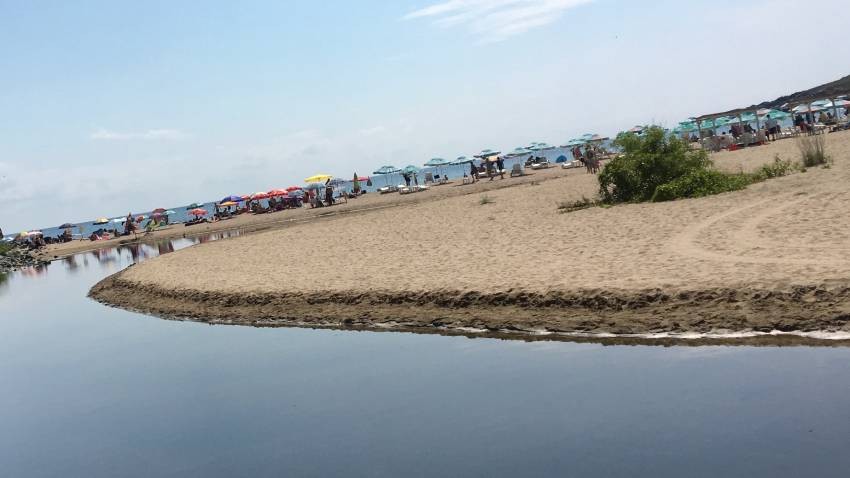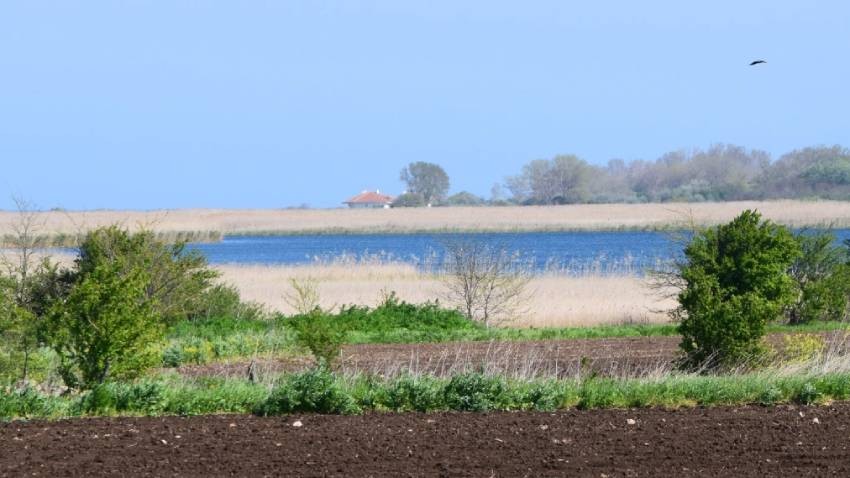How do we imagine our life and livelihood next to protected nature areas, and what did these nature reserves look like 100 years ago, before the institutions put any protection measures in place – this is the subject of a scientific study by a team of young Bulgarian scientists. Their project is called “Life in Protected Zones and Areas: Challenges, Conflicts, Benefits”. For three years they have been conducting ethnological field studies, with a focus on the relations between the local communities and their means of living in Bulgaria, business interests and local and national regulatory authorities – and all this in light of nature protection.
The scholars want to find out how the local people perceive and assess the human footprint on nature, the way they treat natural resources. On the other hand, the opportunities the protected areas create for people are also part of the study.
The project of the Bulgarian researchers is entering a new phase – with a photo exhibition arranged at the Bulgarian Academy of Sciences’ Institute of Ethnology and Folklore Studies in Sofia, and a major international scientific conference on 5 and 6 October.
“What made an impression on us during the field studies was how for the individual groups of people, even within a single rural community, nature is valued differently,” Chief Assistant Ivaylo Markov from the Bulgarian Academy of Sciences’ Institute of Ethnology and Folklore Studies with Ethnographic Museum says and explains:
“For example, shepherds have one perspective of the animal world, which is different from that of hunters, or the people engaged in preserving biodiversity. In reality, these natural resources are important to them all, but in a different way. We have observed a certain amount of progress in the past 10-15 years when it comes to nature protection. We remember at the beginning, when NATURA 2000 was introduced, people were very negative about this network. Now, little by little these attitudes are beginning to turn, and we are even seeing local communities using the fact that a given territory is part of NATURA 2000 to oppose big infrastructure projects. I myself come from the area around Trun in Western Bulgaria, and I have tried to keep up with the debates surrounding the opening of a gold and a silver mine. One of the biggest arguments against this investment intention was precisely the fact that there are protected zones nearby which are part of NATURA 2000, as well as the habitat directives and the directives connected with birds.
The people who were in the committee trying to stop this investment intention developed their own tourist company which has been very active in the past 4-5 years, organizing all kinds of sporting and tourist initiatives. As a result, the region underwent significant changes in the past few years, and it is a matter of time to see whether this local initiative will survive in the future. That is why our study is interesting and important, because it does not give a definitive picture, it traces significant trends.”
The subject of living in proximity to protected zones is innovative and specific to Bulgarian ethnologists.
“This is a subject that enables us to take a look at some classical ethnographic issues in a new way, for example, people’s livelihood, various activities they carry out in the protected zones thanks to the natural resources there,” says Ivaylo Markov: 
“The consumption of resources should take place within certain bounds, we cannot keep on taking, we should give as well. But we are seeing instances when tension builds up between citizens, the local administration, the national administration in these zones. Admittedly, in this project we have not taken account of problems connected with politics that have gained popularity. Our focus is on the smallest settlements. One of them is Ezerets village near Shabla. Lake Shabla is 1.5 kilometres from the village, and it used to be very important to the locals. It was the place they would go to wash their rugs, there are pastures around it, the lake reeds were used for roofing. Later, in the 1970s, a government residence was built and that signaled the beginning of restrictions. For the people that is a trauma because access to the lake is restricted, as is fishing. On the other hand, these restrictions have helped preserve nature, and that is the reason why along the Northern portion of Bulgaria’s Black Sea coast nature is preserved better than it is along the Southern portion. This means people can engage in environmental and rural tourism, and people are aware of that. Ezerets is a village where the population started to increase even before the pandemic. New guest houses are opening there at the moment, but there is a balance and construction works there are within the bounds of the admissible.”
Translated and posted by Milena Daynova
Photos: Research project "Life in Protected Zones and Areas: Challenges, Conflicts, Benefits", Silistra municipality
For yet another year, the Executive Agency for Bulgarians Abroad will present the annual award "Bulgarian Woman of the Year - Sveta Zlata Maglenska 2023" at an official ceremony to be held in October. 24 Bulgarian women residing in 19 countries..
About 70,000 Bulgarians are currentingly residing in Canada, according to data from the Bulgarian Ministry of Foreign Affairs. There are seven Bulgarian Sunday schools in the country. During the past 2023/2024 academic year, one of them - "St...
A record number of 600 "fighters" have gathered at the Uzundzhovo airbase, not for a military conflict, but to celebrate Haskovo's town day. The highlight of the 8 September festivities is an airsoft game, a military simulation that has attracted..
Cultural and linguistic diversity - this is what distinguishes the European Union, and the languages spoken in the community are an important part of..
The mellow days of autumn are the perfect time to take a stroll among the stores lining the Samovodska charshia in Veliko Tarnovo. The old crafts street..

+359 2 9336 661
